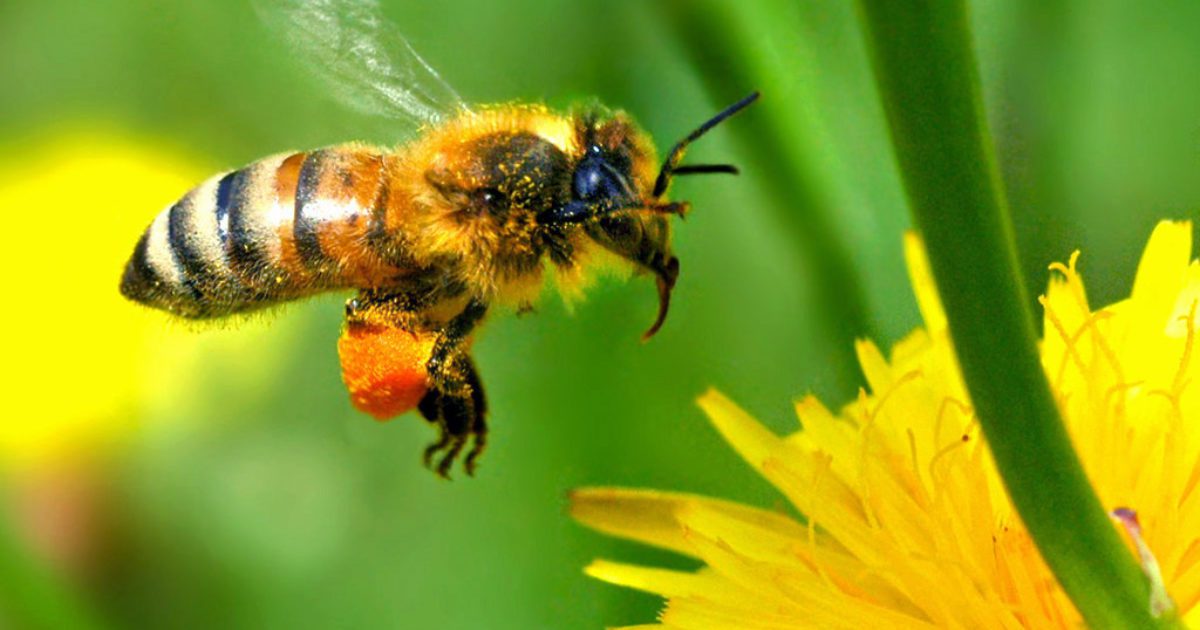Why do mad scientists have to vaccinate every animal on planet Earth?
Humans, livestock, and now honeybees.
We need honeybees for food pollination.
It’s critical to our food supply.
About 1/3 of the food eaten by Americans comes from crops pollinated by honeybees.
If anything damages honeybees, our food supply is in trouble.
What is the proposed solution to ‘protect the health’ of honeybees?
A vaccination.
That seems to be the ‘solution’ for everything.
The U.S. Department of Agriculture (USDA) granted a conditional license for a vaccine created by Dalan Animal Health.
The U.S. biotech company’s vaccine is said to help protect honeybees from American foulbrood disease.
“Our vaccine is a breakthrough in protecting honeybees,” said Annette Kleiser, chief executive of Dalan Animal Health.
“We are ready to change how we care for insects, impacting food production on a global scale.”
The way we’ll care for insects in the future is by vaccinating them?
Who else has a bad feeling about that strategy?
US government approves use of world’s first vaccine for honeybees https://t.co/HJD4APMBFz
— Guardian news (@guardiannews) January 5, 2023
Vaccine for BEES 🐝 🐝 🐝
The US Department of Agriculture (USDA) has granted a conditional license for a #vaccine to help protect #honeybees from American foulbrood disease (a bacterial brood disease that weakens and kills honey #bee colonies). https://t.co/WQOeU9aT9n
— Dr Melvin Sanicas (@Vaccinologist) January 5, 2023
The Guardian reported:
The vaccine, which will initially be available to commercial beekeepers, aims to curb foulbrood, a serious disease caused by the bacterium Paenibacillus larvae that can weaken and kill hives. There is currently no cure for the disease, which in parts of the US has been found in a quarter of hives, requiring beekeepers to destroy and burn any infected colonies and administer antibiotics to prevent further spread.
“It’s something that beekeepers can easily recognize because it reduces the larvae to this brown goo that has a rancid stink to it,” said Keith Delaplane, an entomologist at the University of Georgia, which has partnered with Dalan for the vaccine’s development.
The vaccine works by incorporating some of the bacteria into the royal jelly fed by worker bees to the queen, which then ingests it and gains some of the vaccine in the ovaries. The developing bee larvae then have immunity to foulbrood as they hatch, with studies by Dalan suggesting this will reduce death rates from the disease.
“In a perfect scenario, the queens could be fed a cocktail within a queen candy – the soft, pasty sugar that queen bees eat while in transit,” Delaplane said. “Queen breeders could advertise ‘fully vaccinated queens.’”
Dalan Animal Health explained how the vaccine works:
The Dalan vaccine technology exposes queen bees to inactive (i.e., “dead”) bacteria, which enables the larvae hatched in the hive to resist infection.
Dalan can assist in creating a custom vaccination program for your operation that is compatible with a variety of commonly used queen cages.



Join the conversation!
Please share your thoughts about this article below. We value your opinions, and would love to see you add to the discussion!